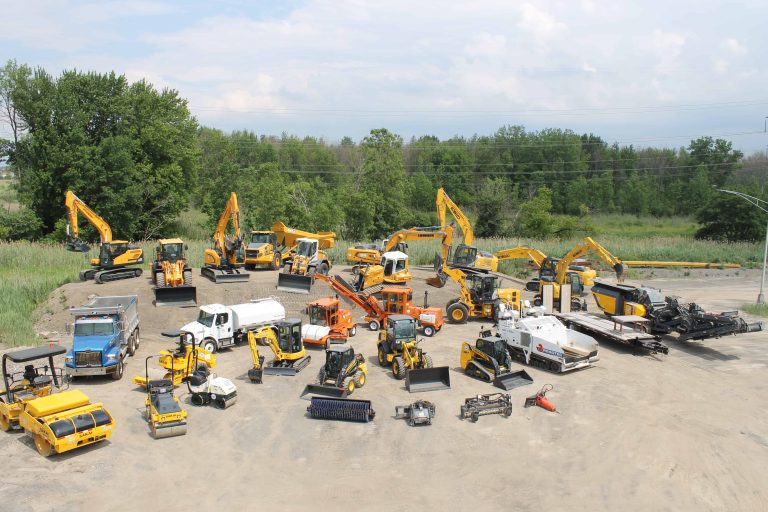Rental Company Near Me: Local Solutions for Equipment Rentals
Rental Company Near Me: Local Solutions for Equipment Rentals
Blog Article
Maximize Your Spending Plan by Comprehending the Costs Connected With Building Devices Services
Understanding the complete range of costs connected with building equipment rentals is vital for maximizing your spending plan. What techniques can be used to effectively handle these prices and make certain a more reliable rental experience?
Overview of Rental Expenses
When considering building equipment services, understanding the connected prices is vital for reliable budgeting and project planning. Rental costs can vary significantly based on a number of factors, consisting of equipment type, period of service, and place. The first rental fee usually shows the equipment's market need and its associated functional capacities, affecting the general expenditure.
Along with the base rental price, secondary costs may arise, such as transport charges, fuel surcharges, and upkeep charges. It is crucial to make up these added costs to precisely examine the complete expense of leasing devices. The rental duration can impact prices; longer rentals may qualify for discounted prices, while short-term services may incur greater everyday charges.

Break Down of Rental Prices
A detailed understanding of rental rates is essential for contractors and job supervisors intending to maximize their spending plans. Rental rates for building and construction tools commonly contain several parts, including base prices, time-based costs, and use costs.
Base rates are the core charges related to the service of the devices, often established by the type and size of the machinery. These rates can vary dramatically, influenced by elements such as equipment demand, accessibility, and regional market fads. Time-based charges, which might be daily, weekly, or monthly, serve to fit various job timelines and rental durations.
Additionally, rental rates might consist of use costs, which are relevant when equipment is used beyond a defined threshold, guaranteeing that the rental firm can make up damage. Seasonal need fluctuations can likewise impact rental rates, with peak construction periods usually regulating higher rates.
Furthermore, recognizing the rental firm's policies concerning upkeep and insurance can offer further understanding right into the general expense framework. By examining these parts, contractors can make informed decisions, ensuring the option of rental equipment aligns with both job needs and budget restraints.
Added Costs to Take Into Consideration
Comprehending the intricacies of added costs is critical for service providers to manage their general service expenditures effectively. Past the conventional rental rates, various supplemental charges can dramatically influence the overall price of devices leasing. These fees often include distribution and pickup fees, which can vary based upon distance and logistics associated with carrying the equipment to and from the work website.
In addition, some rental firms may enforce gas surcharges if the equipment is returned with less gas than when leased. It is likewise necessary to know potential cleaning charges, particularly for specific devices that requires detailed upkeep after usage.

Extensively assessing the rental contract and clarifying these extra fees in advance can help service providers make certain and stay clear of unexpected costs that spending plans remain intact throughout the project lifecycle.
Repair And Maintenance Costs
Routine upkeep and repair service expenses are frequently forgotten aspects that can dramatically affect the total price of construction equipment rentals. When renting tools, it is critical to take into consideration not only the rental costs however also the possible prices linked with maintaining the equipment in ideal operating problem.
Several rental companies consist of basic upkeep as component of the rental arrangement; nonetheless, extra unforeseen break downs or substantial repairs can cause extra costs. It's important to examine the rental contract meticulously to comprehend what upkeep services are covered and what asphalt grinder for skid steer responsibilities drop on the tenant.
Moreover, tools that is not well-maintained can result in ineffectiveness at work website, possibly increasing and creating hold-ups project prices. To alleviate these dangers, it is a good idea to conduct normal assessments and preserve open interaction with the rental copyright concerning any kind of issues that arise during usage.
Insurance Coverage and Obligation Expenses
Insurance policy and responsibility costs are critical elements that can considerably impact the overall cost of construction devices rentals (scissor lift rental). These costs make certain that both the rental firm and the client are protected from potential economic losses emerging from crashes, damage, or theft during the rental period

Furthermore, clients need to understand any deductibles or exclusions in the insurance plan, as these can influence prospective out-of-pocket expenses. Understanding the terms and conditions of any kind of insurance protection is crucial to stay clear of click reference unexpected costs. Ultimately, budgeting for insurance and liability expenditures can aid ensure a smoother rental experience and shield against financial risks connected with building jobs.
Final Thought
In final thought, a detailed understanding of the expenses associated with construction equipment services is vital for effective budget plan monitoring. Ultimately, notified decision-making pertaining to equipment leasings contributes to the general success of construction endeavors.
Rental prices can vary substantially based on a number of variables, consisting of devices type, period of leasing, and location (scissor lift rental). The this link rental duration can impact pricing; longer leasings might qualify for discounted rates, while short-term services might sustain higher daily fees
By conducting extensive research and involving with reputable rental business, service providers can effectively browse the complexities of rental rates, eventually maximizing their financial sources.
Beyond the typical rental rates, various supplementary charges can dramatically influence the total cost of devices rental. Rental business usually give responsibility insurance policy that covers injuries to third events or damages to property, while equipment damages insurance policy can cover the price of fixings or replacement if the rented out tools is harmed.
Report this page